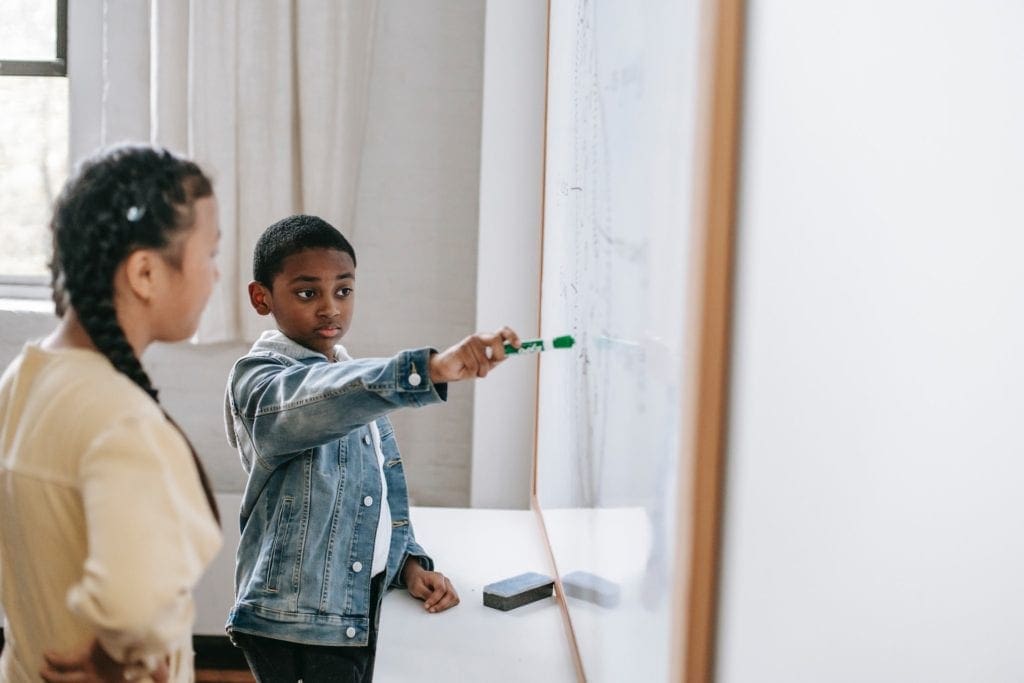How to conduct ethical research on sexual exploitation involving children

Any research requires careful thought to ensure that the best ethical practices are being used. When research involves children, we have added responsibilities to do the absolute best by them. Here Andrea Varrella, Project Coordinator of Amplifying the Voices of Survivors, a joint project between WePROTECT Global Alliance and ECPAT International, shares some of the learning from the ethical review of the project methodology.
When research seeks to generate knowledge and evidence about sexual abuse, exploitation, trafficking, and similar issues involving children, there are a unique set of sensitivities at play. It is important that research on sexual exploitation and abuse is done to really understand the ways that children are impacted. Strong evidence allows us to provide better support to survivors. Strong evidence allows for stronger prevention approaches to sexual exploitation.
Beyond providing better data, research can also have other benefits too.
Children have the right to be heard…
The UN Convention on the Rights of the Child dictates that children have the right to be heard. When it comes to research, that means they have the right to be involved, and to shape research that could have positive impacts on them and their peers. We as adults also have a genuine responsibility to ensure their perspectives are part of the evidence framing proposed solutions.
…but this must be balanced with preventing further harm
Research must balance the benefits with the possible – and sometimes significant – risks of harm. For example, survivors retelling or reliving experiences of sexual abuse and exploitation for research projects can be highly distressing or even traumatic. But is this type of research absolutely necessary? If needed, could details of their cases already be found in existing police or social services records? Or could the research questions positively focus on their suggestions for improvements to services instead of asking them to retell their traumatic experiences?
How do you do ethical research on this topic?
1. Use the guidelines
ECPAT International’s Guidelines for Ethical Research on Sexual Exploitation involving Children offer a framework for ethical research design on this topic. They guide the researcher through four steps to design a project, and set up a series of ‘ethical tasks’ that should be undertaken in any research project.
The Guidelines are not intended to definitively answer all questions, but will help the reader find answers themselves about their individual research project.
The Guidelines are the result of collaboration between Chung Cheng University Taiwan, ECPAT Taiwan, ECPAT International and a global working group of ECPAT member organisations and other experts.
2. Seek ethical approval
It’s commonly agreed that independent, third-party ethical review strengthens ethical research. This important step can spot a range of concerns that the researchers may not have considered themselves. It can help a project to move past potential biases.
Amplifying the Voices of Survivors
In late 2020, WePROTECT Global Alliance and ECPAT International partnered to conduct important primary research to amplify the voices of survivors of online child sexual exploitation and abuse in Latin America and Eastern Europe. This will involve conducting trauma-informed ‘survivor conversations’ with young people in Mexico, Colombia, Peru, Albania, Moldova and Bosnia and Herzegovina.
Although a careful assessment was made of the ethical concerns which may arise from the project during design, the project team also proceeded with independent ethical review.
As this research project will be conducted in multiple countries, rather than work through six national ethics committees, we convened an expert panel of three global experts on research about sexual exploitation and abuse from around the world.
A comprehensive research protocol was developed for the panel. This included information on sampling, research methodology, specific ethical concerns, and risk assessment. We also included the tools to be used in the project – survey, conversation approaches, and carefully prepared participant information sheets and consent forms.
The expert panel provided detailed feedback on the protocol that lead to a range of changes and improvements to the approach and tools to better ensure the benefits for potential participants far outweigh any risks. A particular area of focus of the expert’s panel feedback was the information sheet and consent form to be shared with the young survivors. Following the panel’s suggestions, additional and clearer information were added regarding, among other things, limitations to confidentiality and the process to withdraw from the research project and present concerns or complaints about it.
The expert’s panel feedback also helped us to refine and articulate how risks have been identified and mitigated, consistently centering the welfare of the participants.
With the additional layer of ethical scrutiny and approval now complete, the ECPAT International and WePROTECT Global Alliance teams are excited for the on-the-ground research to get underway in the coming months and to share the outputs and insights towards the end of the year.
This blog draws on a blog post first published on ECPAT International’s website in November 2019. If you have any questions about the Amplifying the Voices of Survivors project, please contact Andrea.
The views and opinions expressed in this article are those of the authors and do not necessarily reflect the official policy or position of WeProtect Global Alliance or any of its members.
Page last updated on 14th November 2024